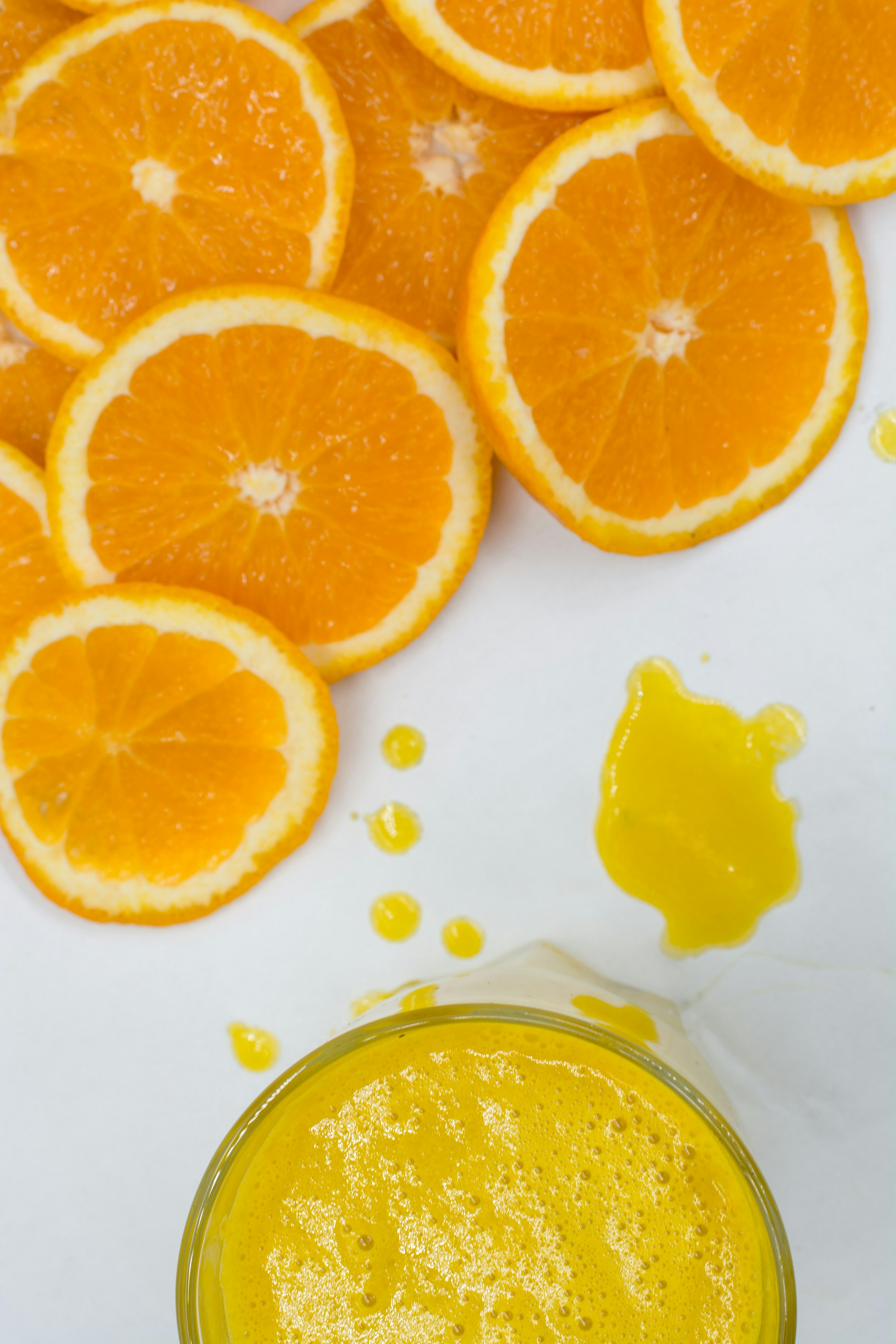Discover the best food sources of vitamin D to incorporate into your diet. From fatty fish to fortified cereals, these options are packed with essential nutrients for optimal health.
In the realm of nutrition, it is crucial to pay attention to essential vitamins and minerals, and one that often goes unnoticed is vitamin D. From promoting bone health to supporting the immune system, vitamin D plays a vital role in maintaining overall well-being. While sunlight is the primary natural source, it may not always be accessible for everyone. Therefore, finding alternative food sources that are abundant in this essential nutrient becomes paramount. In this article, you will discover ten highly nutritious foods that are rich in vitamin D, allowing you to incorporate them into your diet for optimal health benefits.
1. Fatty fish
Salmon
Salmon is an excellent source of vitamin D and is highly recommended as part of a healthy diet. It is not only delicious but also packed with essential nutrients. A 3.5-ounce serving of cooked salmon contains approximately 386 IU (International Units) of vitamin D, which is equivalent to about 64% of the recommended daily intake. In addition to its vitamin D content, salmon is rich in omega-3 fatty acids, which are beneficial for heart health and inflammation reduction.
Sardines
Sardines are another fatty fish that is abundant in vitamin D. Just 3.5 ounces of sardines can provide you with a whopping 177 IU of this essential vitamin. These small, oily fish are also an excellent source of omega-3 fatty acids, calcium, and protein. Sardines are known for their distinct flavor and are often enjoyed on crackers or added to salads.
Mackerel
Mackerel is a nutrient-dense fish that should definitely be included in your vitamin D-rich diet. A 3.5-ounce serving of cooked mackerel contains around 345 IU of vitamin D. This flavorful fish is also a great source of omega-3 fatty acids, selenium, and vitamin B12. Incorporating mackerel into your meals can help boost your vitamin D levels while supporting overall health and well-being.
Trout
Trout is not only a delicious freshwater fish but also an excellent source of vitamin D. A 3.5-ounce serving of cooked trout provides approximately 600-1000 IU of vitamin D, depending on the specific type of trout. In addition to its high vitamin D content, trout is also an excellent source of omega-3 fatty acids, protein, and essential minerals like selenium and potassium.
Tuna
Tuna is a popular fish worldwide and also happens to be a good source of vitamin D. A 3.5-ounce serving of canned tuna contains around 236 IU of vitamin D, while fresh tuna provides approximately 154 IU. Tuna is an excellent source of lean protein and omega-3 fatty acids, making it a nutritious choice for those looking to increase their vitamin D intake.
2. Cod liver oil
Cod liver oil is a potent and concentrated source of vitamin D. This oil, derived from the liver of the codfish, is renowned for its high vitamin D content. A single tablespoon of cod liver oil contains a whopping 1,360 IU of vitamin D, which is more than double the recommended daily intake. Consuming cod liver oil can be an effective way to supplement your vitamin D levels, particularly if you have limited sun exposure or low dietary intake.

3. Canned fish
Sardines
Canned sardines are not only a convenient and affordable option but also a great source of vitamin D. 3.5 ounces of canned sardines can provide you with approximately 177 IU of vitamin D. This canned fish is packed with omega-3 fatty acids, calcium, and protein, making it a healthy addition to your diet.
Salmon
Canned salmon is another fantastic choice if you’re looking for a convenient way to boost your vitamin D intake. A 3.5-ounce serving of canned salmon offers around 308 IU of vitamin D. Canned salmon retains its nutritional value and is an excellent source of omega-3 fatty acids, calcium, and protein, just like fresh salmon.
Mackerel
Canned mackerel is a cost-effective option to incorporate into your vitamin D-rich meal plan. 3.5 ounces of canned mackerel contains approximately 200-400 IU of vitamin D, depending on the brand and preparation method. It is also high in omega-3 fatty acids and other essential nutrients, making it a smart choice for those looking to increase vitamin D intake.
Tuna
Canned tuna is a popular pantry staple and is readily available in most households. A 3.5-ounce serving of canned tuna provides around 268 IU of vitamin D. Tuna is not only convenient but also a good source of lean protein, omega-3 fatty acids, and other important minerals.
4. Egg yolks
Egg yolks are a versatile and accessible source of vitamin D. One large egg yolk contains approximately 41 IU of vitamin D. While the vitamin D content in eggs may not be as high as in some of the aforementioned foods, they still provide a valuable source of this essential vitamin. Eggs are also an excellent source of protein, healthy fats, and other important nutrients.

5. Dairy products
Milk
Fortified milk is one of the most common sources of dietary vitamin D. One cup of milk fortified with vitamin D typically contains around 115-130 IU of vitamin D. Drinking milk regularly can help you meet your recommended daily intake of this vital nutrient. Additionally, milk is a good source of calcium, protein, and vitamin A.
Yogurt
Yogurt is a versatile and nutritious dairy product that can contribute to your vitamin D intake. While the vitamin D content in yogurt may vary depending on the brand and type, it is generally fortified to provide added nutritional value. Enjoying a serving of yogurt, especially those fortified with vitamin D, can help support your overall health and well-being.
Cheese
Cheese, although not typically associated with vitamin D, can still offer a modest amount of this important nutrient. The vitamin D content in cheese can range widely depending on the variety and preparation method. Hard cheeses like cheddar and Swiss generally contain around 1-6 IU per ounce, while soft cheeses like brie and camembert provide slightly higher amounts. While cheese makes a delicious addition to meals and snacks, it should be consumed in moderation due to its higher calorie and saturated fat content.
6. Fortified plant-based milk
Soy milk
Soy milk is a popular alternative to dairy milk and is commonly fortified with essential nutrients, including vitamin D. One cup of soy milk fortified with vitamin D typically provides around 100-144 IU of vitamin D, making it a suitable option for individuals following a plant-based diet or those with lactose intolerance.
Almond milk
Almond milk is another plant-based alternative that is often fortified with vitamin D. Similar to soy milk, one cup of vitamin D-fortified almond milk contains approximately 100-144 IU of vitamin D. Almond milk is low in calories and can be a suitable option for those who prefer a dairy-free lifestyle or have specific dietary restrictions.
Oat milk
Oat milk, made from oats and water, is gaining popularity as a dairy-free milk alternative. Fortified oat milk provides around 120-144 IU of vitamin D per cup. It is a good source of fiber and can be enjoyed in various delicious beverages or used in cooking and baking.

7. Mushrooms
Although rare among plant-based foods, mushrooms have the unique ability to naturally produce small amounts of vitamin D when exposed to sunlight or ultraviolet (UV) light. Certain varieties of mushrooms, such as shiitake and maitake, can provide up to 400 IU of vitamin D per 3.5-ounce serving. Incorporating mushrooms into your diet can be a great way to boost your overall vitamin D levels, particularly for vegetarians and vegans.
8. Fortified cereals
Breakfast cereals
Many breakfast cereals are fortified with various nutrients, including vitamin D. The amount of vitamin D in fortified cereals can vary, but it typically ranges from 40-100 IU per serving. Starting your day with a bowl of fortified cereal can help you meet your daily vitamin D needs while enjoying a wholesome, convenient breakfast option.
9. Tofu
Tofu is a popular plant-based protein source and can provide a modest amount of vitamin D. The amount of vitamin D in tofu can vary depending on the brand and preparation method, but it typically ranges from 99-200 IU per serving. Incorporating tofu into your meals can not only boost your protein intake but also contribute to your overall vitamin D levels.
10. Beef liver
Beef liver may not be as commonly consumed as other items on this list, but it is a nutrient powerhouse that offers a significant amount of vitamins and minerals, including vitamin D. A 3.5-ounce serving of beef liver can provide up to 49 IU of vitamin D. However, it’s important to consume beef liver in moderation due to its high cholesterol content.
In conclusion, there are various food sources that can help you maintain optimal vitamin D levels. Incorporating fatty fish such as salmon, sardines, mackerel, trout, and tuna into your diet is an excellent way to increase your intake of vitamin D and other essential nutrients. Cod liver oil and canned fish, including sardines, salmon, mackerel, and tuna, offer convenient options for those looking to supplement their vitamin D intake. Additionally, egg yolks, dairy products like milk, yogurt, and cheese, fortified plant-based milk alternatives such as soy milk, almond milk, and oat milk, mushrooms, fortified cereals, tofu, and beef liver can all contribute to your vitamin D needs. By including these nutritious foods in your diet, you can ensure you are getting an adequate amount of vitamin D to support your overall health and well-being.


